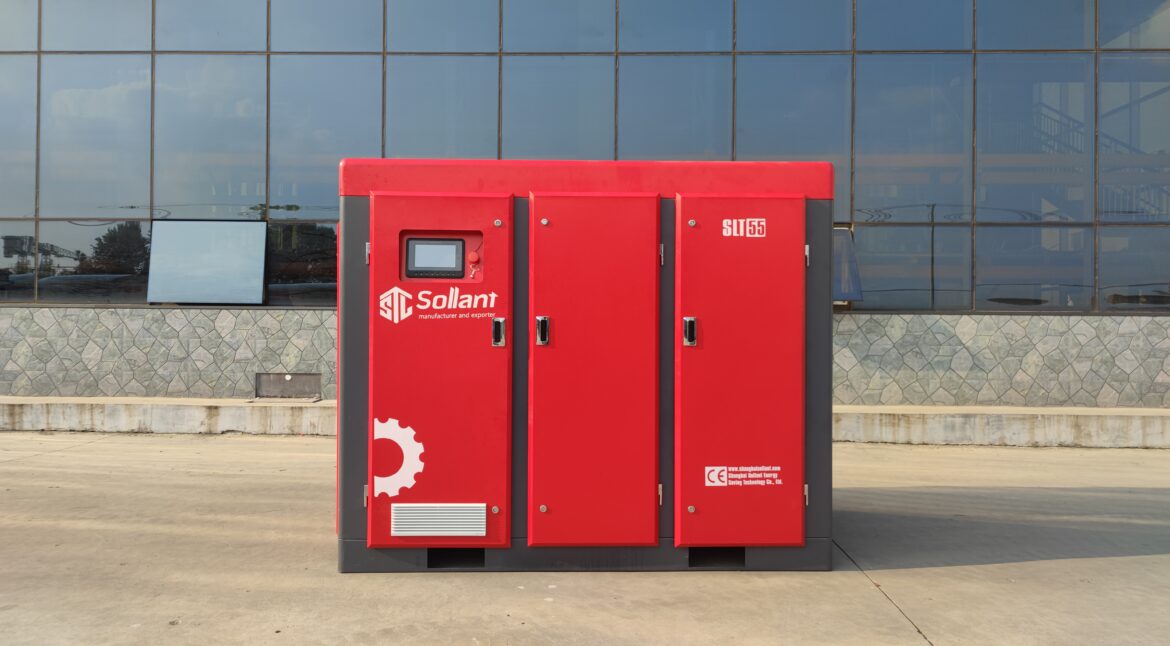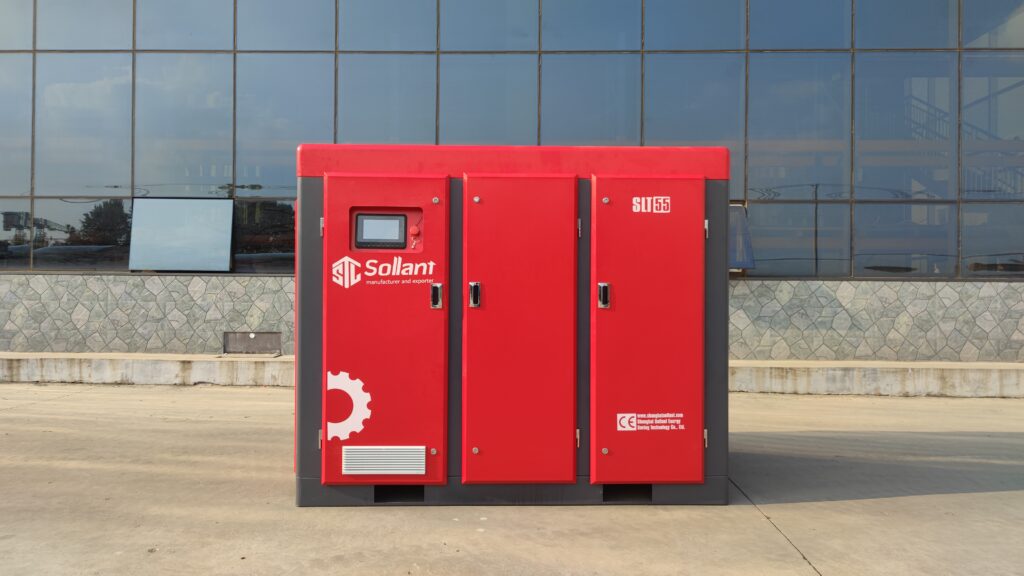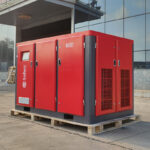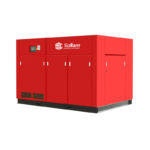Screw air compressors are essential in various industries, but they can sometimes generate excessive noise, which not only impacts energy efficiency but also contributes to workplace discomfort. There are two primary causes for this noise. The first is the high speed of the motor, which can lead to body vibrations and energy waste. The second is the interaction between the intake and exhaust valves, which causes exhaust pulsation, leading to excitation noise. Severe air flow pulsation increases noise, affecting the compressed air pipeline and auxiliary equipment.
Here are the key solutions to reduce noise in screw air compressors:
1. Reduce Air Flow Pulsation
Air flow pulsation is a significant contributor to noise. To mitigate this, consider installing a buffer device such as an orifice plate, venturi tube, or buffer tank. These components help reduce pulsation by smoothing the airflow, thus minimizing the noise generated.
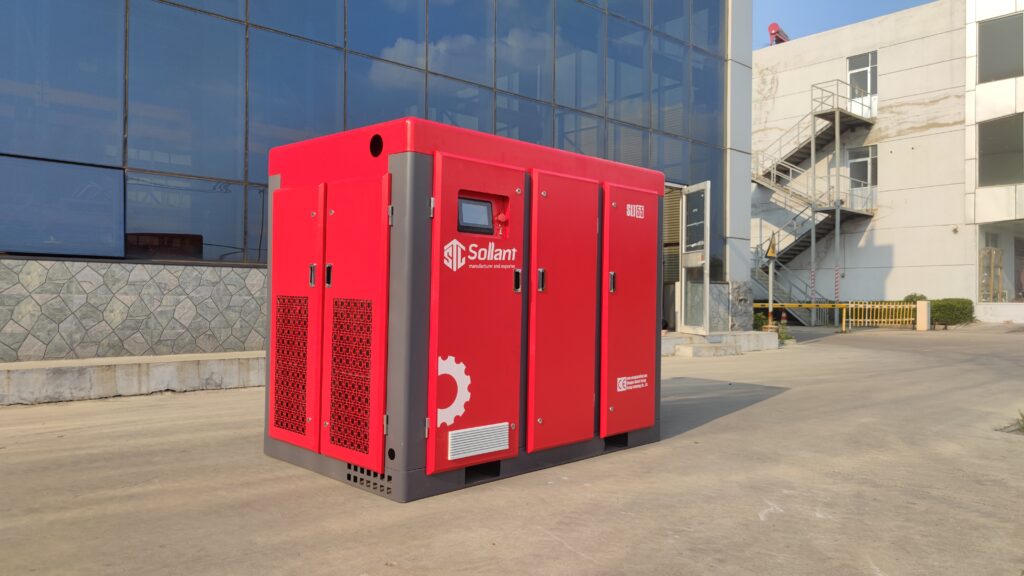 Screw Air Compressors
Screw Air Compressors
2. Minimize Mechanical Vibration
Mechanical vibrations from the machine body or pipes can amplify noise levels. To combat this, you can add pipe clamps at strategic points in the pipeline. Proper placement of these clamps will stabilize the pipes, reducing vibration and the resulting noise.
3. Ensure Normal Oil Supply
Inadequate lubrication inside the air compressor can cause dry friction, which contributes to high noise levels. Regularly check whether the oil supply is functioning properly. If any issues are found, take immediate action to restore proper lubrication and prevent further noise or damage.
Screw Air Compressors
4. Regular Maintenance
Damaged internal parts can lead to collisions between components, increasing noise. Performing timely maintenance is critical to identify and resolve any issues before they escalate. Regularly servicing the air compressor ensures that all parts are functioning properly and reduces the likelihood of excess noise.
5. Install Sound Insulation
For small to medium-sized air compressors, installing a detachable sound insulation cover can effectively reduce noise. For larger air compressor units, a more comprehensive approach may be required. Consider setting up an independent sound insulation room, where the walls, doors, and windows are made of soundproof materials. Operators can monitor the system from a separate control room to avoid exposure to high noise levels.
By addressing these noise-related issues with proper equipment, routine checks, and strategic installations, you can significantly reduce the noise produced by screw air compressors, leading to a quieter and more energy-efficient work environment.
How to Efficiently Use a 315kW Air Compressor
Before operating the air compressor, you should pay attention to the following issues:

